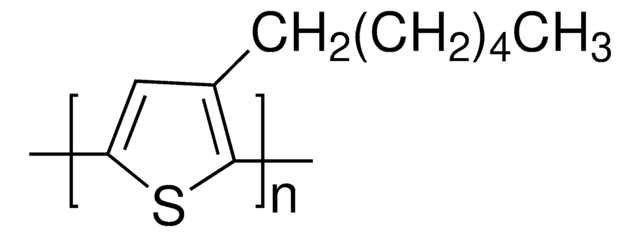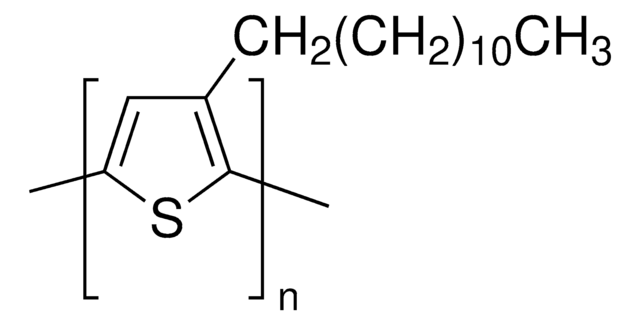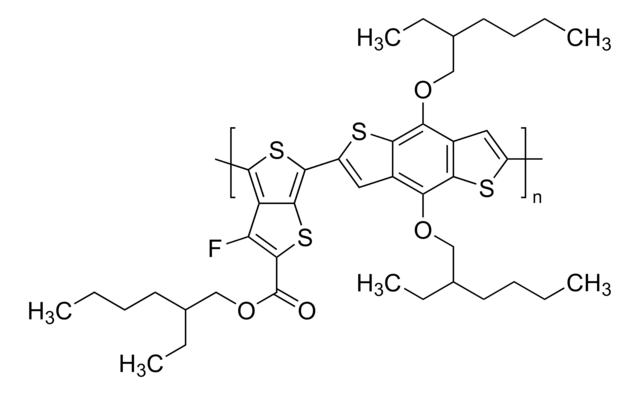445703
Poly(3-hexylthiophene-2,5-diyl)
regioregular
Synonym(s):
P3HT
About This Item
Recommended Products
Quality Level
mol wt
average Mw 50,000-100,000
greener alternative product characteristics
Design for Energy Efficiency
Learn more about the Principles of Green Chemistry.
sustainability
Greener Alternative Product
conductivity
~103 S/cm (when doped with iodine)
mp
238 °C
238 °C
fluorescence
λex 443 nm; λem 568 nm in chloroform
Orbital energy
HOMO 5 eV
LUMO 3 eV
OPV Device Performance
ITO/NiO/P3HT/PC61BM/LiF/Al
ITO/PEDOT:PSS/P3HT:PC61BM (1:08)/Al
greener alternative category
semiconductor properties
P-type (mobility=1E-4-1E-1 cm2/V·s)
Looking for similar products? Visit Product Comparison Guide
General description
Application
Features and Benefits
Good processibility, environmental stability and electroactivity.
Packaging
Legal Information
Rieke is a registered trademark of Rieke Metals, Inc.
Storage Class Code
11 - Combustible Solids
WGK
WGK 3
Flash Point(F)
Not applicable
Flash Point(C)
Not applicable
Personal Protective Equipment
Certificates of Analysis (COA)
Search for Certificates of Analysis (COA) by entering the products Lot/Batch Number. Lot and Batch Numbers can be found on a product’s label following the words ‘Lot’ or ‘Batch’.
Already Own This Product?
Find documentation for the products that you have recently purchased in the Document Library.
Customers Also Viewed
Articles
Flexible electronic circuits and displays based on organic active materials are future generations of products that may eventually enter mainstream electronics market.
PCBM-based n-type semiconductors - Find p- and n-type organic semiconductors available with PCBM library & properties.
Flexible electronic circuits, displays, and sensors based on organic active materials will enable future generations of electronics products that may eventually enter the mainstream electronics market.
The application of conducting polymers at the interface with biology is an exciting new trend in organic electronics research.
Our team of scientists has experience in all areas of research including Life Science, Material Science, Chemical Synthesis, Chromatography, Analytical and many others.
Contact Technical Service

![[6,6]-Phenyl C61 butyric acid methyl ester ≥99%](/deepweb/assets/sigmaaldrich/product/structures/359/221/d990c746-0960-4c69-bf76-fe09b193824d/640/d990c746-0960-4c69-bf76-fe09b193824d.png)






